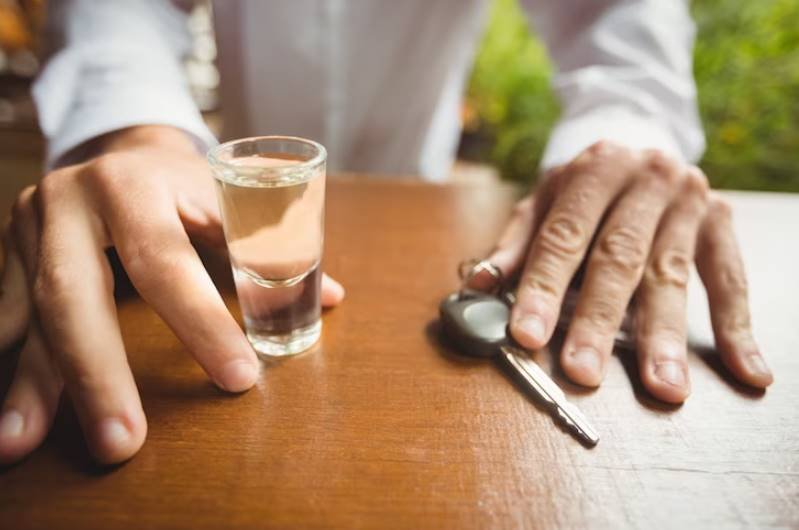Just experienced hot feet after drinking alcohol? You’re not alone. Understanding why this happens can help you manage the discomfort. Learn about the causes, such as vasodilation, dehydration, liver metabolism, nerve sensitivity, and histamine release. By taking preventive measures like staying hydrated, moderating your alcohol intake, maintaining a balanced diet, and seeking medical advice if needed, you can effectively address this common issue. Read on to discover insights into why your feet get hot when you drink alcohol.
Key Takeaways:
- Vasodilation: Alcohol causes blood vessels to dilate, leading to increased blood flow and a warm sensation in the feet.
- Dehydration: Alcohol is a diuretic, causing fluid loss and electrolyte imbalance, which can contribute to hot feet.
- Liver Metabolism: The liver metabolizes alcohol into substances that can generate heat and discomfort, affecting the feet.
- Nerve Sensitivity: Chronic alcohol consumption can damage nerves, leading to burning or heat sensations in the feet.
- Histamine Release: Alcohol can trigger histamine release, causing inflammation and warmth in the feet.
Causes of Hot Feet After Drinking Alcohol
Vasodilation
For some people, alcohol consumption can lead to vasodilation, where blood vessels in the body expand, including those in your feet. This expansion increases blood flow to your extremities, causing a warm or hot sensation in your feet.
Dehydration
Drinking alcohol can contribute to dehydration, as it is a diuretic that promotes increased urination and fluid loss. This fluid loss can lead to an imbalance in electrolytes, which may intensify the feeling of heat in your feet.
Dehydration can exacerbate symptoms like hot feet, especially since up to 75% of Americans are chronically dehydrated. Staying hydrated with plenty of water before, during, and after drinking alcohol can help mitigate this discomfort.

Liver Metabolism
Causes of hot feet after drinking alcohol can also be linked to liver metabolism. As the liver processes alcohol into acetaldehyde, a substance that can cause inflammation and discomfort, heat production is generated contributing to the sensation in your feet.
Chronic alcohol consumption can lead to toxin build-up in the liver, further exacerbating inflammation and discomfort that may manifest as hot feet. Maintaining a balanced diet rich in vitamins and minerals can support liver health and reduce these effects.
Nerve Sensitivity
For some individuals, nerve sensitivity can play a role in experiencing hot feet after drinking alcohol. Chronic alcohol consumption can damage peripheral nerves, leading to sensations of burning or heat in the feet. Even short-term alcohol use can temporarily affect nerve function, contributing to this discomfort.
For others who may be experiencing acute effects from alcohol consumption, nerve sensitivity can also be a factor in feeling hot feet. Making sure to drink in moderation and be mindful of your body’s response can help manage nerve-related symptoms.
Histamine Release
A potential cause of hot feet after drinking alcohol may be histamine release triggered by the intake of alcohol. Histamines can lead to inflammation and warmth in various body parts, including the feet. This immune response can heighten the sensation of heat experienced in your feet.
Release of histamines due to alcohol consumption can further contribute to the feeling of hot feet, so being mindful of your body’s reaction and ensuring hydration before and after drinking can help alleviate these symptoms.
Preventive Measures
Hydration
To prevent hot feet after drinking alcohol, it’s important to stay hydrated. After all, up to 75% of Americans are chronically dehydrated, which can worsen symptoms like hot feet. To combat this, make sure to drink plenty of water before, during, and after alcohol consumption. Also, consider electrolyte-rich beverages to keep your body’s balance in check.
Moderation
For preventing hot feet, moderation is key. Limiting your alcohol consumption can help minimize symptoms. Start by reducing the amount of alcohol you drink to give your body a chance to process it gradually. Drinking at a slower pace can also be beneficial in managing the effects of alcohol on your body.
For better moderation, try to be mindful of your drinking habits. Pay attention to how much alcohol you’re consuming and how quickly you’re drinking it. This awareness can help you make more informed decisions and potentially reduce the discomfort of hot feet after drinking.
Nutritional Support
Any imbalances in your diet can contribute to discomfort after drinking alcohol. To support your overall health and potentially reduce hot feet, aim for a well-balanced diet rich in vitamins and minerals. Consider incorporating vitamin B complex supplements, as B vitamins are crucial for nerve health and may help alleviate symptoms related to nerve sensitivity.
With a focus on proper nutrition, you can give your body the support it needs to handle the effects of alcohol more effectively and potentially reduce the occurrence of hot feet.
Medical Consultation
For additional support in managing hot feet after drinking alcohol, consider seeking medical advice. If symptoms persist despite preventive measures, consulting a healthcare provider can provide personalized recommendations and potential treatments to address the underlying causes. Keep track of any other symptoms you may experience, as they could indicate more serious health issues that need attention.
Support your well-being by staying informed and seeking medical advice when necessary to ensure your comfort and safety when dealing with the effects of alcohol on your body, including hot feet.
To wrap up
Thus experiencing hot feet after drinking alcohol is a common phenomenon that can be attributed to vasodilation, dehydration, liver metabolism, nerve sensitivity, and histamine release. To manage this discomfort, it’s crucial to focus on preventive measures such as staying hydrated, moderating alcohol intake, maintaining a balanced diet, and seeking medical advice if necessary. By taking these steps, you can alleviate the sensation of hot feet and make informed decisions about your alcohol consumption.
Bear in mind, it’s important to listen to your body and prioritize your health. If you continue to experience hot feet after drinking alcohol, don’t hesitate to reach out to a healthcare provider for personalized advice and potential treatments. By addressing this issue proactively, you can ensure a more comfortable and enjoyable experience when consuming alcohol. Stay informed, stay hydrated, and take care of yourself.
FAQ
Q: Why do my feet get hot when I drink alcohol?
A: Drinking alcohol can cause blood vessels to expand, leading to increased blood flow to the feet, resulting in a warm sensation.
Q: How can dehydration contribute to hot feet after drinking alcohol?
A: Alcohol is a diuretic, causing increased urination and fluid loss, which can lead to an electrolyte imbalance and a feeling of heat in the feet.
Q: What role does liver metabolism play in causing hot feet after alcohol consumption?
A: The liver metabolizes alcohol into substances that can cause inflammation and heat production, contributing to hot feet.
Q: Can nerve sensitivity be a factor in experiencing hot feet after drinking alcohol?
A: Chronic alcohol consumption can damage peripheral nerves, leading to sensations of burning or heat in the feet, even after short-term alcohol use.
Q: What preventive measures can help manage hot feet when consuming alcohol?
A: Staying hydrated, moderating alcohol intake, maintaining a balanced diet, and seeking medical advice if symptoms persist can help in managing hot feet after drinking alcohol.


















